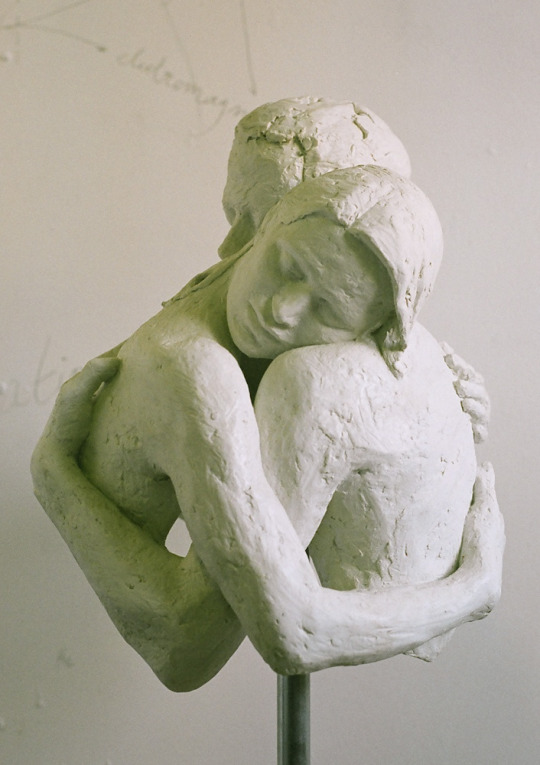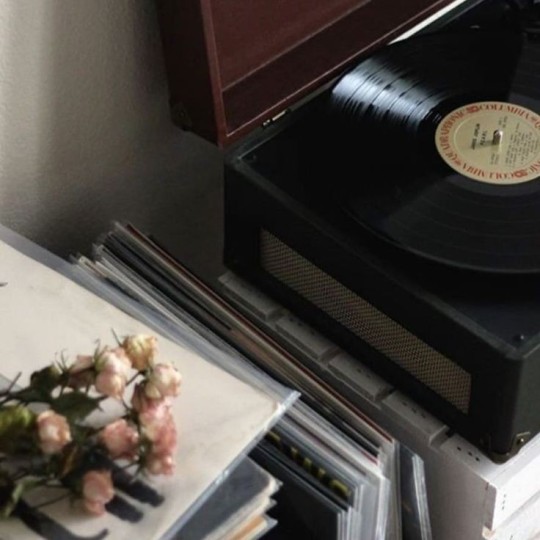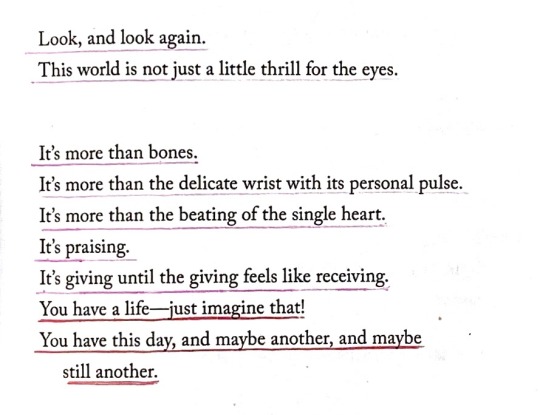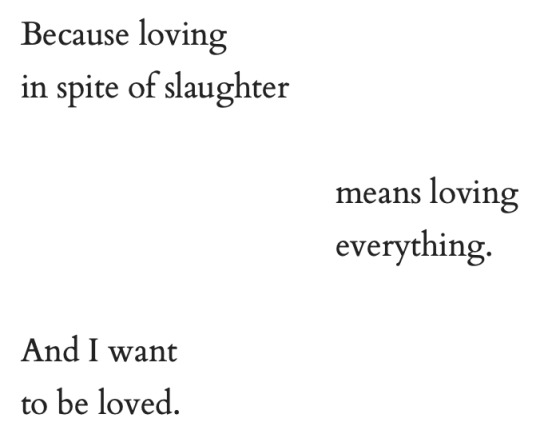Text
you worry the cardboard sleeve around the coffee and think about landfills and the future without straws. you are worried about prion disease and deer. you are worried about the rising temperature of mushrooms. you are worried about teflon and microplastics and carcinogens and whatever else you're being quietly lied to about.
your mother used to jokingly say you are "a worrier," which always kind of oddly hurt your feelings. you feel like a person. and besides, you've been told one-million-times that this is normal. examples get trotted out in a pony show each time: everyone gets nervous sometimes. they talk about public speaking and picturing people naked and how when they get nervous they just-get-over-it.
you run your hands down the grater of your life and feel the sharpness. you started holding your breath in tunnels as a kid, worried that if you relax, the ceiling would cave in. like years of architects and engineers weren't responsible - you, and your faith, you were responsible for the success of infrastructure. if you slipped for a moment, your whole family would be swept away under the ocean. and the problem is that it worked - no tunnel collapsed.
you once broke a coffee carafe and even though you didn't drink from it after, you worried that there had been some previous invisible micro-break that had made you drink glass particles. you stayed awake for 24 hours, constantly dreading each swallow, waiting to taste blood.
you hate being late, you worry about it. you go to grab literally just lunch with a friend - no pressure, no emergency - and you still park the car an hour early and just sit there scrolling on your phone aimlessly. maybe you just don't like surprises or change. you triple-check you locked the doors, and then go to bed, and then get up out of bed to check twice again.
a worrier. like a strange and dreadful bingo card, you collect weekly experiences. someone tells you that you're overthinking, that's 2 points. you have to physically turn around and go back in your house to check you unplugged everything, that's 1 point. spiraling about climate change or politics or the state of the world is a free space, that's basically every evening.
you worry you're being selfish and not a good person because how come you're worried about your dog's health and the itch in your eye when you know people who are really very ill or who have it worse or who are genuinely struggling. then you worry that you're being annoying by infantilizing them. then you worry that your priorities are wrong, that you should be infinitely more worried about the state of a dying planet.
you wanted to be a person, is all. you wanted to go through life in a softness, to hold the world gently and have it whisper past you. and instead you are a worrier. everything that touches you is hard and raw and sharp like diamonds.
1K notes
·
View notes
Text
“I treat myself like I would my daughter. I brush her hair, wash her laundry, tuck her in goodnight. Most importantly, I feed her. I do not punish her. I do not berate her, leave tears staining her face. I do not leave her alone. I know she deserves more. I know I deserve more.”
— Michelle K., I Know I Deserve More.
180K notes
·
View notes
Text






embrace
Briony Marshall (Peaceful embrace or the melting of boundaries), Stephan Sinding (To Mennesker), Gustav Vigeland (Kiss), William Zorach (Embrace), Antonio Canova (Psyche Revived by Cupid's Kiss)
14K notes
·
View notes
Text
MAVIS NICHOLSON: "Do you think it is possible, then, for someone to forgive themselves even when they've done something absolutely terrible?"
TONI MORRISON: "Yes. It's called grace. At some point you do. If you don't, you're in a cul-de-sac. But you have to go through the fire first. You have to experience the full fall, and the complete self-loathing, in order to come around to something like the forgiving of oneself. It's when you skip responsibility, when you use a subsititute emotion like guilt--which is of no use to anyone--but if you feel the real thing which is shame, hatred, humiliation, and self-loathing: that is the door. And if you get through that, then you can forgive yourself."
Toni Morrison interview, Mavis on Four, 1988
2K notes
·
View notes
Text






talk to me boy.
3K notes
·
View notes
Text

George Seferis, tr. by Edmund Keeley & Philip Sherrard from, “The Return of the Exile.” [ID in alt text]
2K notes
·
View notes
Text
I just heard my mom tell my brother, “when you die, you will go outside and garden until your father says you’re done” and it took me a second to realize that my brother was playing a videogame and this was not a theological discussion.
379K notes
·
View notes
Text

Clarice Lispector — An Apprenticeship or The Book of Pleasures
1K notes
·
View notes
Text

Sylvia Plath, from a journal entry featured in "The Unabridged Journals of Sylvia Plath,"
13K notes
·
View notes
Text

to begin with, the sweet grass by mary oliver, from “devotions”
2K notes
·
View notes
Text
[Writing] is a solitary independent activity in which practice can never bestow seniority. Fortunately anyone can take up the activity. Whatever the motives, […] the writing becomes as soon as I begin, a struggle to give meaning to experience. Every profession has limits to its competence, but also its own territory. Writing, as I know it, has no territory of its own. The act of writing is nothing except the act of approaching the experience written about; just as, hopefully, the act of reading the written text is a comparable act of approach.
To approach experience, however, is not like approaching a house. Experience is indivisible and continuous, at least with a single lifetime and perhaps over many lifetimes. I never have the impression that my experience is entirely my own, and it often seems to me that it preceded me. In any case experience folds upon itself, refers backwards and forwards to itself through the referents of hope and fear; and, by the use of metaphor which is at the origin of language, it is continually comparing like with unlike, what is small with what is large, what is near with what is distant. And so the act of approaching a given moment of experience involves both scrutiny (closeness) and the capacity to connect (distance). The movement of writing resembles that of a shuttlecock: repeatedly it approaches and withdraws, closes in and takes its distance. Unlike a shuttlecock, however, it is not fixed to a static frame. As the movement of writing repeats itself, its nearness to, its intimacy with the experience increases. Finally, if one is fortunate, meaning is the fruit of this intimacy.
John Berger, from “The Storyteller,” Landscapes: John Berger on Art (Verso, 2016)
1K notes
·
View notes
Text
brb going outside to wistfully observe the reflections of the shop lights in the wet streets
168K notes
·
View notes
Text
happy "everyone forgets that icarus also flew" monday. i want to throw up !
20K notes
·
View notes
Text

Take Care: Mothers, Daughters, and Inheriting Self-Hatred, Ella Wilson
6K notes
·
View notes
Text

Hanif Abdurraqib, They Can't Kill Us Until They Kill Us
23K notes
·
View notes

